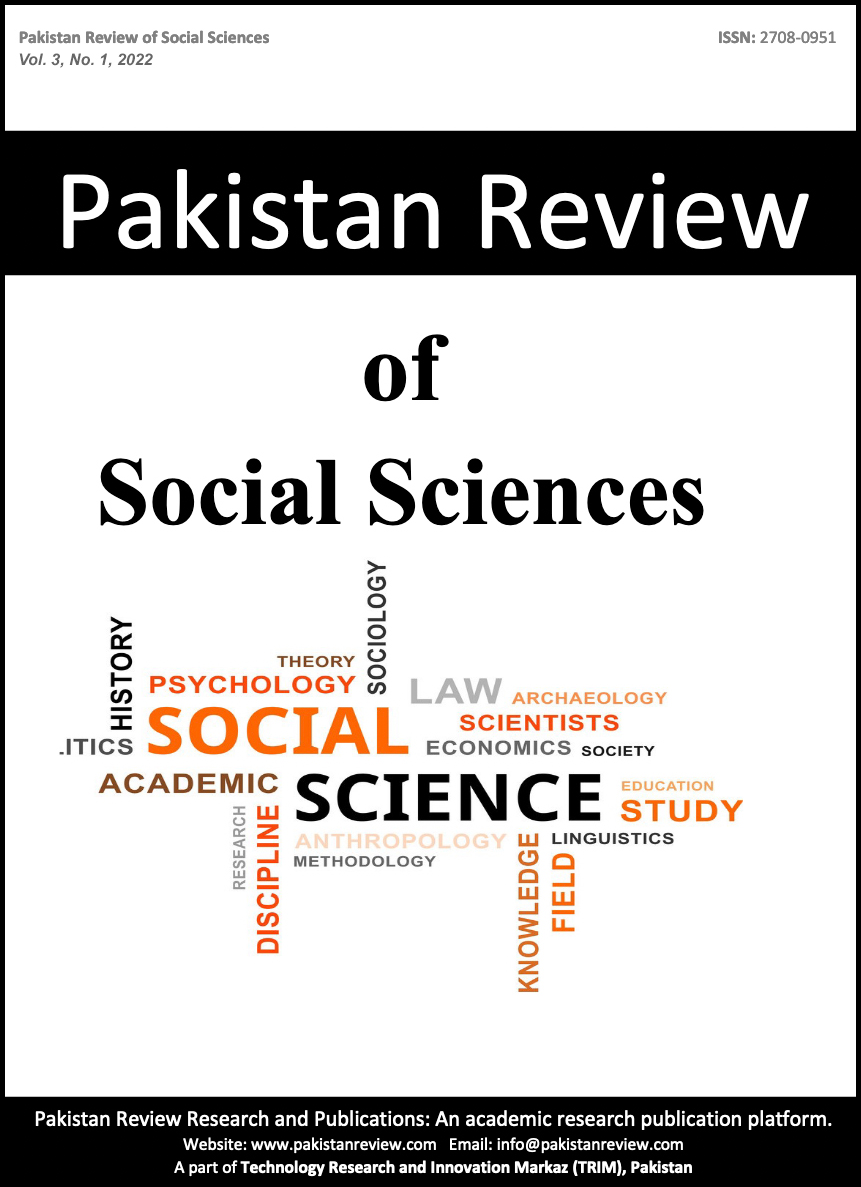Russia and Ukraine Crisis: From Geo-Political Confrontation, to Putin’s Ambition to Regain Lost Grandeur
Abstract
The article discusses different aspects of the Russia-Ukraine Crisis ranging from geo-political confrontation, to Putin’s ambition to regain lost grandeur resulting from Soviet disintegration. Russia’s renewed incursion in Ukraine has initiated deadly conflict in Europe and laid down the foundation of new hostilities between Russia and US-led West and the epicentre of confrontation is Ukraine. Ukraine has remained in constant boil for the past many years for various reasons ranging from internal instability, to Western interference and hostile relations with neighbouring Russia. Ukraine has also been hotbed between West and Russia for its abundant natural and agriculture resources as well as its geo-strategic location blessed with close proximity to Black Sea and Mediterranean Sea making it geo-strategically important for Europe and Russia equally. The Ukraine crisis has left World in a chaotic situation and endangered regional and global peace and stability. Crisis has also resulted in global food shortage and economic crisis globally and shattered the pillars of the global economy. The article articulates that only end to conflict will be by positive approach followed both by Russia and the West.
Downloads
Published
Issue
Section
License
Copyright (c) 2023 Roqia Khurshid

This work is licensed under a Creative Commons Attribution 4.0 International License.
Submission declaration
Authors retain the copyright to their work and grant the Pakistan Review of Social Sciences (PRSS) the right of first publication under a Creative Commons Attribution 4.0 International (CC BY 4.0) license. This license allows others to share, adapt, and reuse the work for any purpose, including commercial use, as long as appropriate credit is given to the original authors and the journal.
By submitting a manuscript, authors confirm that the work has not been published previously (except as an abstract, lecture, or academic thesis), is not under review elsewhere, and has been approved by all authors and relevant authorities. Once accepted, the article will be openly accessible under the CC BY 4.0 license, ensuring wide dissemination and reuse with proper attribution.






